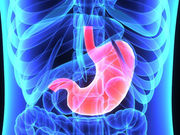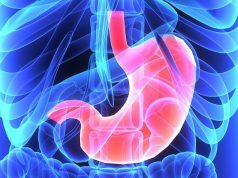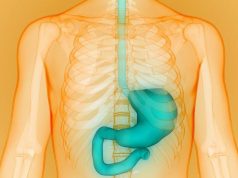Those treated after early CA also had improvement in atrophy grade at gastric corpus lesser curvature
WEDNESDAY, March 21, 2018 (HealthDay News) — Antibiotic treatment for Helicobacter pylori (H. pylori) in patients who underwent endoscopic resection of early-stage gastric cancer or high-grade adenoma is associated with a reduced rate of metachronous gastric cancer, according to a study published in the March 22 issue of the New England Journal of Medicine.
Il Ju Choi, M.D., Ph.D., from the National Cancer Center in Goyang-si, South Korea, and colleagues conducted a prospective, double-blind, placebo-controlled, randomized trial in which 470 patients who had undergone endoscopic resection of early gastric cancer or high-grade adenoma received either H. pylori eradication therapy with antibiotics or placebo.
Based on a modified intention-to-treat analysis of 396 patients, the researchers found that over a median follow-up of 5.9 years, metachronous gastric cancer developed in 14 patients (7.2 percent) in the treatment group and in 27 patients (13.4 percent) in the placebo group (hazard ratio in the treatment group, 0.5). For the 327 patients who underwent histologic analysis, improvement in the atrophy grade at the gastric corpus lesser curvature from baseline was observed in 48.4 percent of the patients in the treatment group and in 15 percent of those in the placebo group. There were no serious adverse events, although mild adverse events were more common in the treatment group (42 versus 10.2 percent).
“Patients with early gastric cancer who received H. pylori treatment had lower rates of metachronous gastric cancer and more improvement from baseline in the grade of gastric corpus atrophy than patients who received placebo,” the authors write.
Abstract/Full Text (subscription or payment may be required)
Editorial (subscription or payment may be required)
Copyright © 2018 HealthDay. All rights reserved.








